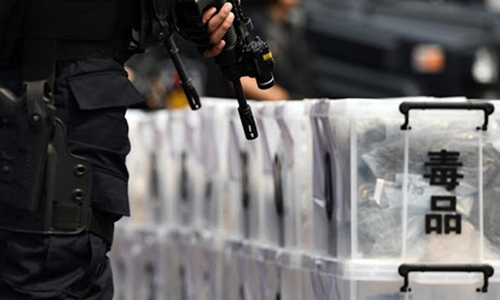Australians 'overreact' against Chinese products; to harm their interests
Australians ‘overreact’ against Chinese products

Visitors look at the China Railway Rolling Stock Corporation (CRRC) booth at the AusRail in the Sydney International Exhibition Centre in Sydney, Australia, Dec.3, 2019. (Xinhua/Hao Yalin)
Products made in China are causing a stir in Australia, with some Australians calling others to ditch Chinese items. However, considering the sheer scale of the imports, it is unrealistic to remove Chinese products, Chinese experts say.Due to recent bilateral tensions, shopping bags that were made in China and provided by the Australian supermarket chain Woolworths have come under the spotlight. According to local media reports, some Australian consumers said they do not want to see "Made in China" on the bags, calling others to dump goods imported from China.
However, according to Liu Qing, director of the Department for Asia and the Pacific Study at the China Institute of International Studies, replacing Chinese goods in Australia's consumer supply chain, such as fabric and toys, would be impossible and "foolhardy," given Australia's high labor cost.
"China has been the biggest source of imports in Australia for many years," Liu said. "Many Australian companies such as Woolworths have stable and long-term suppliers in China that provide cheap and high-quality products."
For many years, Australia has been the beneficiary of China's mature supply chain. According to Liu, labor-intensive products such as furniture, toys and fabric from China hold up to 60 percent of the Australian market. In 2018, Australia imported about $55.52 billion of products from China, accounting for one quarter of its total imports.
"If Australians want to source these products locally, they will have to start from scratch, and they will have to prepare for much higher prices on its market," Liu said.
The backlash involving the shopping reflects growing anti-China sentiment in Australia. A new YouGov survey found that 88 percent of Australians surveyed believe they should rely less on Chinese imports and make more products at home, and 82 percent also think that the government should use Australian-made products in local infrastructure construction.
The sentiment against Chinese products is not grounded in commercial reality but is instead incited by local politics, according to Ruan Zongze, executive vice president of the China Institute of International Studies.
According to Ruan, recent trade friction between China and Australia has fueled the belief in Australia that China is responsible for its economic slowdown and the job losses that many locals have been affected by.
"The immediate trigger of the protectionist sentiment is its economic slowdown," Ruan said, adding that "Australia is experiencing an impact from the coronavirus outbreak, and its economy might be dragged into a recession. Protectionism is often on the rise when the economy is ticking down."

